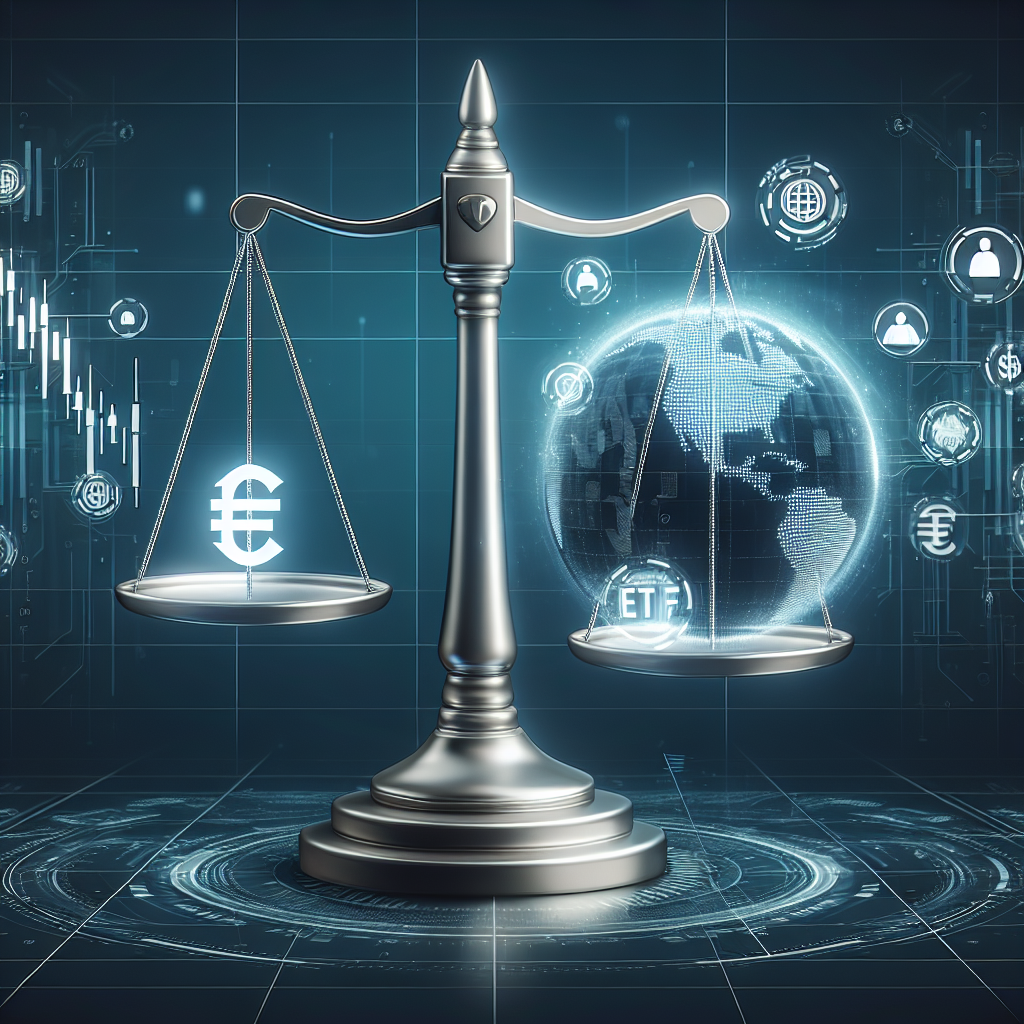Recent Developments in Cryptocurrency Regulations: Grayscales ETF Journey and Russias Mining Initiatives

```html
Recent Developments in Cryptocurrency Regulations: Grayscale's ETF Journey and Russia's Mining Initiatives
The year 2023 has been pivotal in shaping the landscape of cryptocurrency regulations globally. Significant shifts have occurred, driven by increasing adoption, growing concerns about investor protection and financial stability, and the inherent volatility associated with digital assets. This summary explores key trends, focusing on the landmark Grayscale ETF case and Russia's evolving stance on cryptocurrency mining, alongside broader international regulatory efforts.
Grayscale's ETF Victory: A Turning Point?
Grayscale Investments' legal battle with the U.S. Securities and Exchange Commission (SEC) over the conversion of its Grayscale Bitcoin Trust (GBTC) into a spot Bitcoin ETF marked a watershed moment. The SEC had repeatedly rejected Grayscale's application, citing concerns about market manipulation and the lack of sufficient surveillance-sharing agreements. Grayscale argued that the SEC's reasoning was inconsistent, as it had approved Bitcoin futures ETFs but denied spot ETFs, despite both being linked to the same underlying Bitcoin market. In a significant victory for Grayscale, a federal court ruled in their favor, vacating the SEC's rejection order. This ruling compels the SEC to re-evaluate Grayscale's application and potentially sets a precedent for the approval of other spot Bitcoin ETFs.
The potential approval of a spot Bitcoin ETF could have profound implications. It would provide institutional and retail investors with a more accessible and regulated avenue for investing in Bitcoin, potentially driving significant inflows into the cryptocurrency market. Unlike futures ETFs, a spot ETF would hold actual Bitcoin, rather than contracts based on its future price, which many believe would more accurately reflect the true value of the underlying asset. The court's decision has undeniably placed pressure on the SEC to adopt a more consistent and pragmatic approach to cryptocurrency regulation.
Russia's Cryptocurrency Mining Initiatives: Balancing Control and Innovation
Russia's approach to cryptocurrency has been complex and at times contradictory. Initially, there was considerable uncertainty and even calls for outright bans. However, the government has gradually adopted a more nuanced perspective, recognizing the potential economic benefits of cryptocurrency mining, particularly given Russia's abundant energy resources. The country has emerged as a significant player in the global Bitcoin mining landscape, attracting miners due to relatively low electricity costs.
Recent developments suggest a move towards regulating and legitimizing the mining industry. The Russian government is exploring ways to tax mining operations and bring them under regulatory oversight. This aims to generate revenue, combat illicit activities, and ensure environmental sustainability. There's been discussion around creating a legal framework that defines the status of miners, their obligations, and the types of digital assets they can mine. Russia is also exploring the use of cryptocurrencies for international trade, potentially to circumvent sanctions and reduce reliance on the U.S. dollar. This reflects a broader trend among some nations to explore alternative financial systems in the face of geopolitical tensions.
Global Regulatory Trends and Challenges
Beyond the Grayscale case and Russia's mining initiatives, several broader global regulatory trends are shaping the future of cryptocurrencies. These include:
- Increased Scrutiny of Stablecoins: Stablecoins, cryptocurrencies pegged to a stable asset like the U.S. dollar, have faced increased regulatory scrutiny due to concerns about their reserves, transparency, and potential systemic risks. Regulators are considering imposing bank-like regulations on stablecoin issuers to ensure they have sufficient reserves to back their coins and can handle potential redemption requests.
- Focus on Investor Protection: Protecting retail investors from fraud, scams, and market manipulation remains a top priority for regulators. This includes stricter know-your-customer (KYC) and anti-money laundering (AML) requirements for cryptocurrency exchanges and service providers. Regulators are also issuing warnings about the risks associated with investing in volatile cryptocurrencies and unregistered securities offerings.
- Development of Central Bank Digital Currencies (CBDCs): Many countries are exploring the possibility of issuing their own CBDCs. These digital versions of fiat currencies could offer several benefits, including faster and cheaper payments, increased financial inclusion, and enhanced monetary policy tools. However, CBDCs also raise complex questions about privacy, data security, and the role of central banks in the digital age.
- Cross-Border Collaboration: Given the global nature of cryptocurrencies, international collaboration is essential to effectively regulate the industry. Organizations like the Financial Stability Board (FSB) and the Financial Action Task Force (FATF) are working to develop international standards for cryptocurrency regulation and combat cross-border illicit activities.
- The EU's MiCA Regulation: The European Union's Markets in Crypto-Assets (MiCA) regulation represents a comprehensive framework for regulating cryptocurrencies within the EU. MiCA aims to provide legal clarity, protect consumers, and promote innovation in the crypto sector. It covers a wide range of issues, including licensing requirements for crypto-asset service providers, rules for stablecoins, and measures to prevent market abuse.
The Path Forward
The future of cryptocurrency regulation remains uncertain, but the trends outlined above suggest a move towards greater oversight and integration with the traditional financial system. Regulators are grappling with the challenge of balancing innovation with the need to protect investors and maintain financial stability. The Grayscale ETF case highlights the growing pressure on regulators to adopt a more pragmatic approach to cryptocurrency regulation. Russia's evolving stance on mining demonstrates the potential for governments to leverage cryptocurrencies for economic gain, while also seeking to control and regulate the industry. Ultimately, the success of cryptocurrencies will depend on the ability of regulators and industry participants to work together to create a clear, consistent, and effective regulatory framework that fosters innovation, protects consumers, and ensures the integrity of the financial system.
```Read more at https://stevehodgkiss.net/post/recent-developments-in-cryptocurrency-regulations-grayscales-etf-journey-and-russias-mining-initiatives/
Disclaimer: The information on this article and the links provided are for general information only and should not constitute any financial or investment advice. I strongly recommend you to conduct your own research or consult a qualified investment advisor before making any financial decisions. I am not responsible for any loss caused by any information provided directly or indirectly on this website.
Comments
Post a Comment